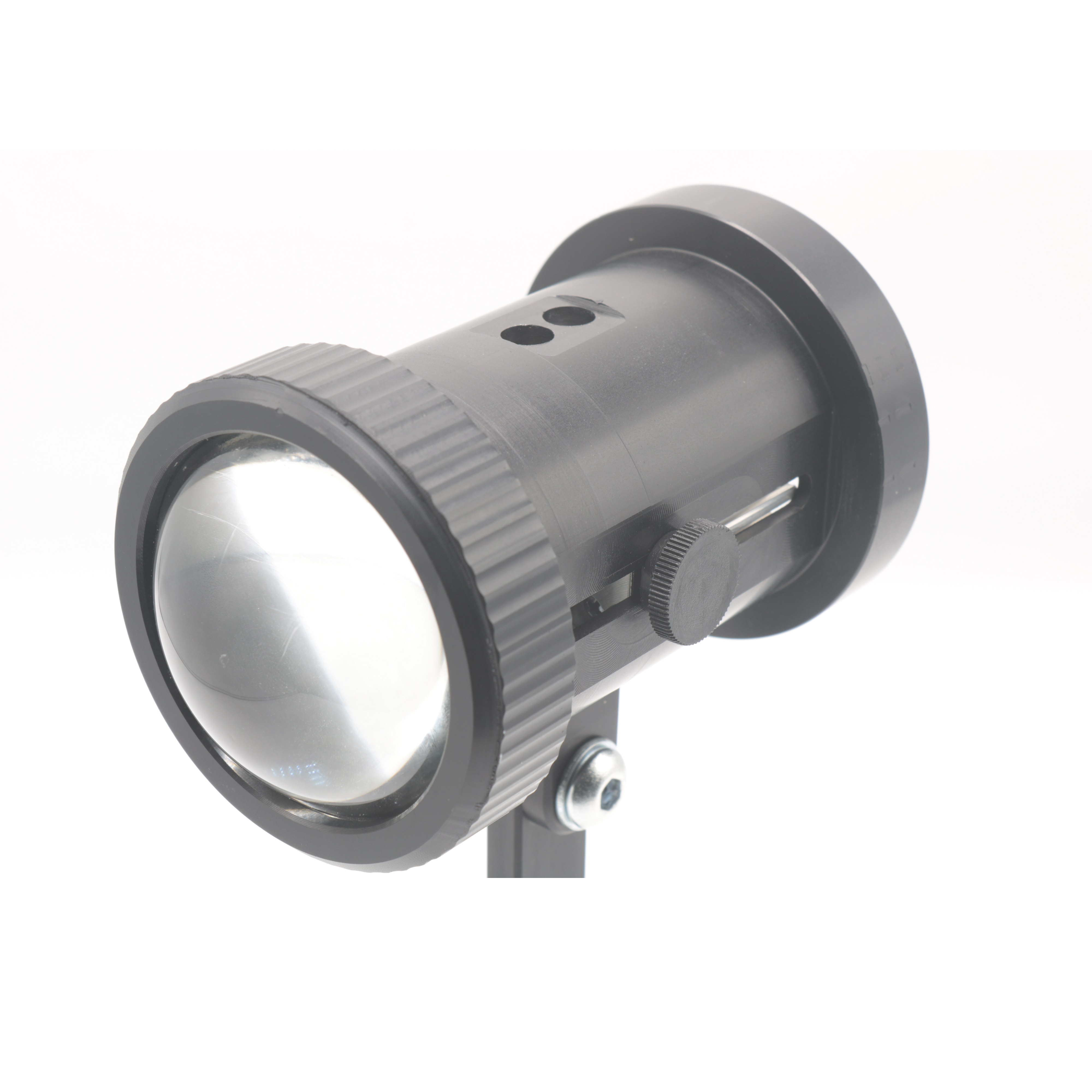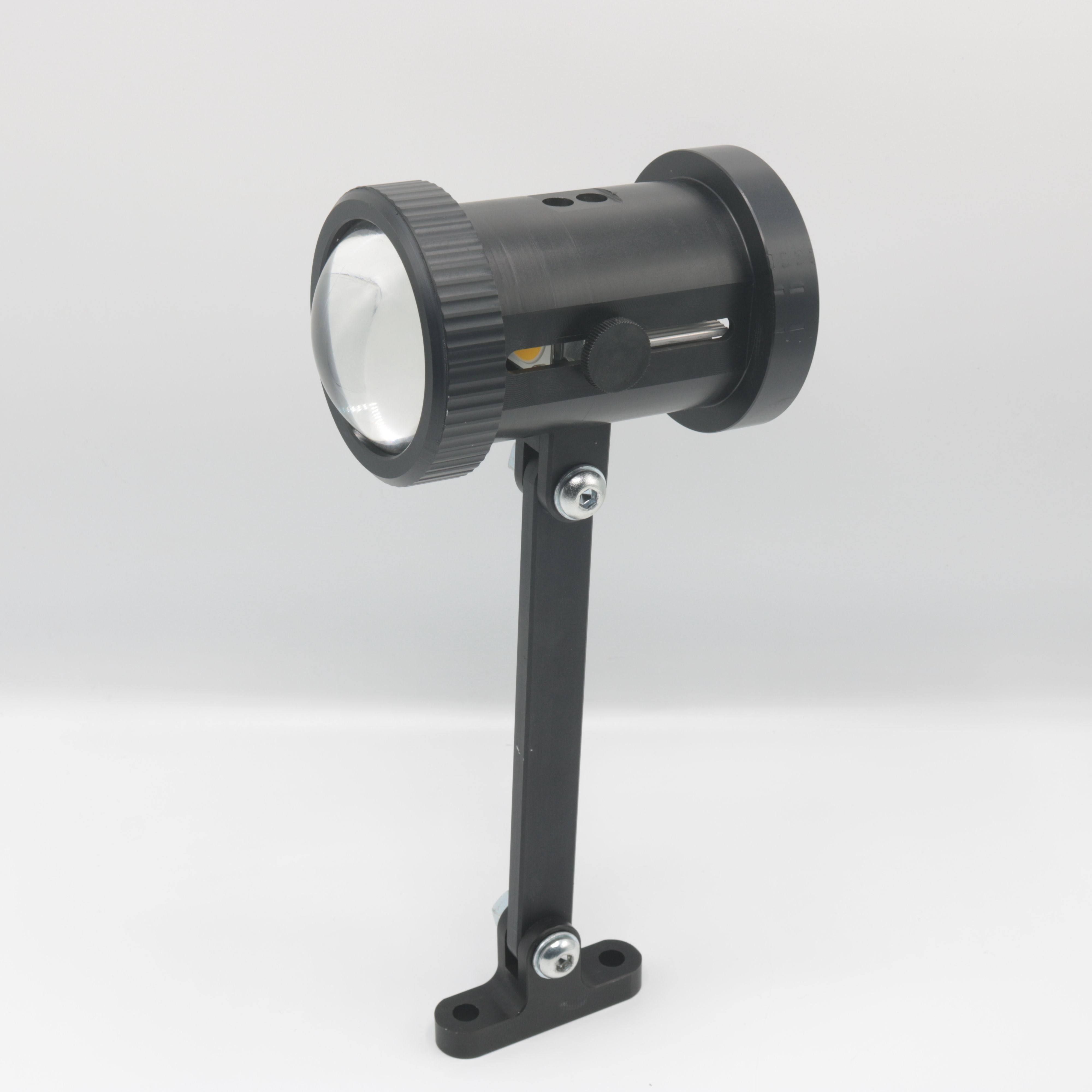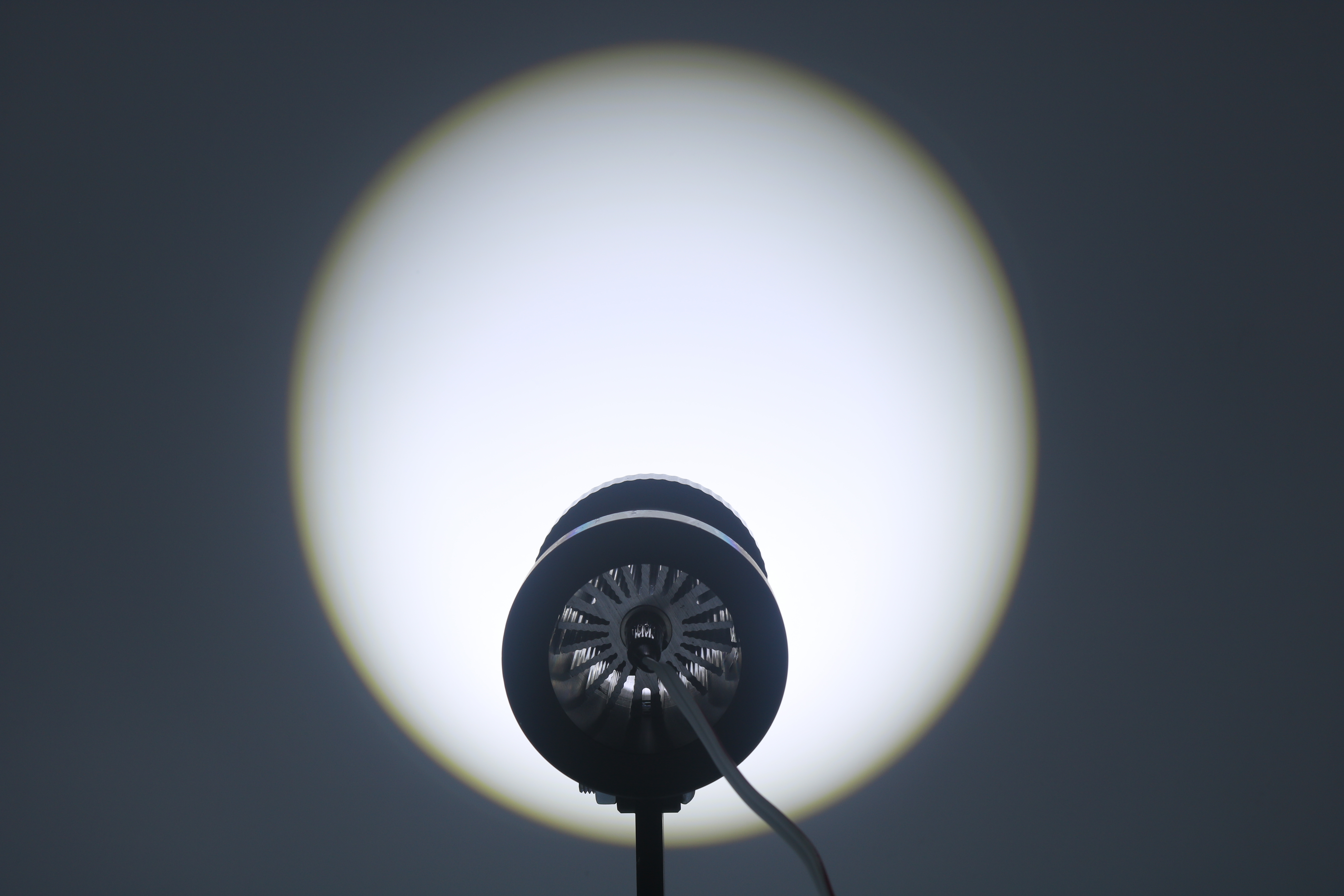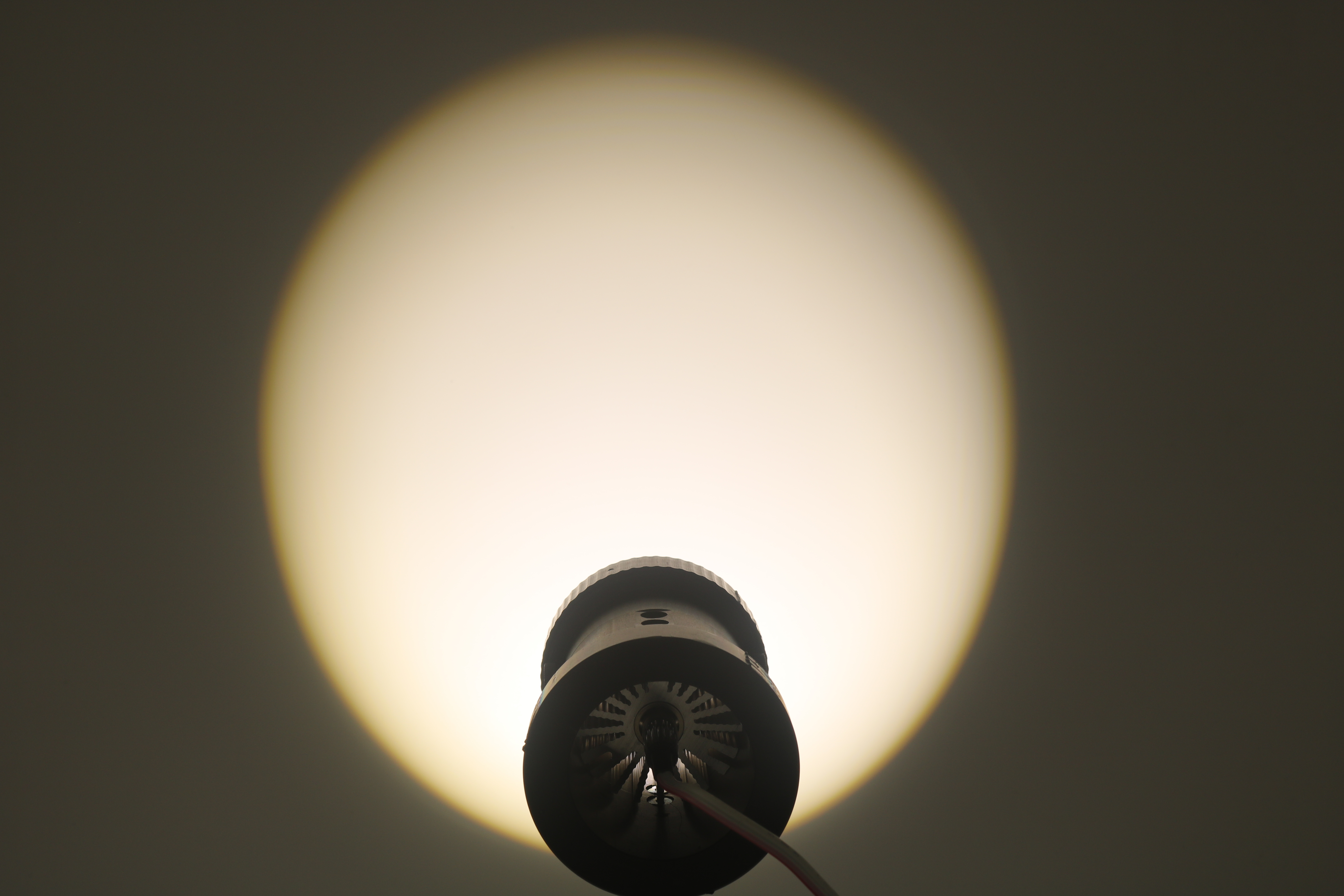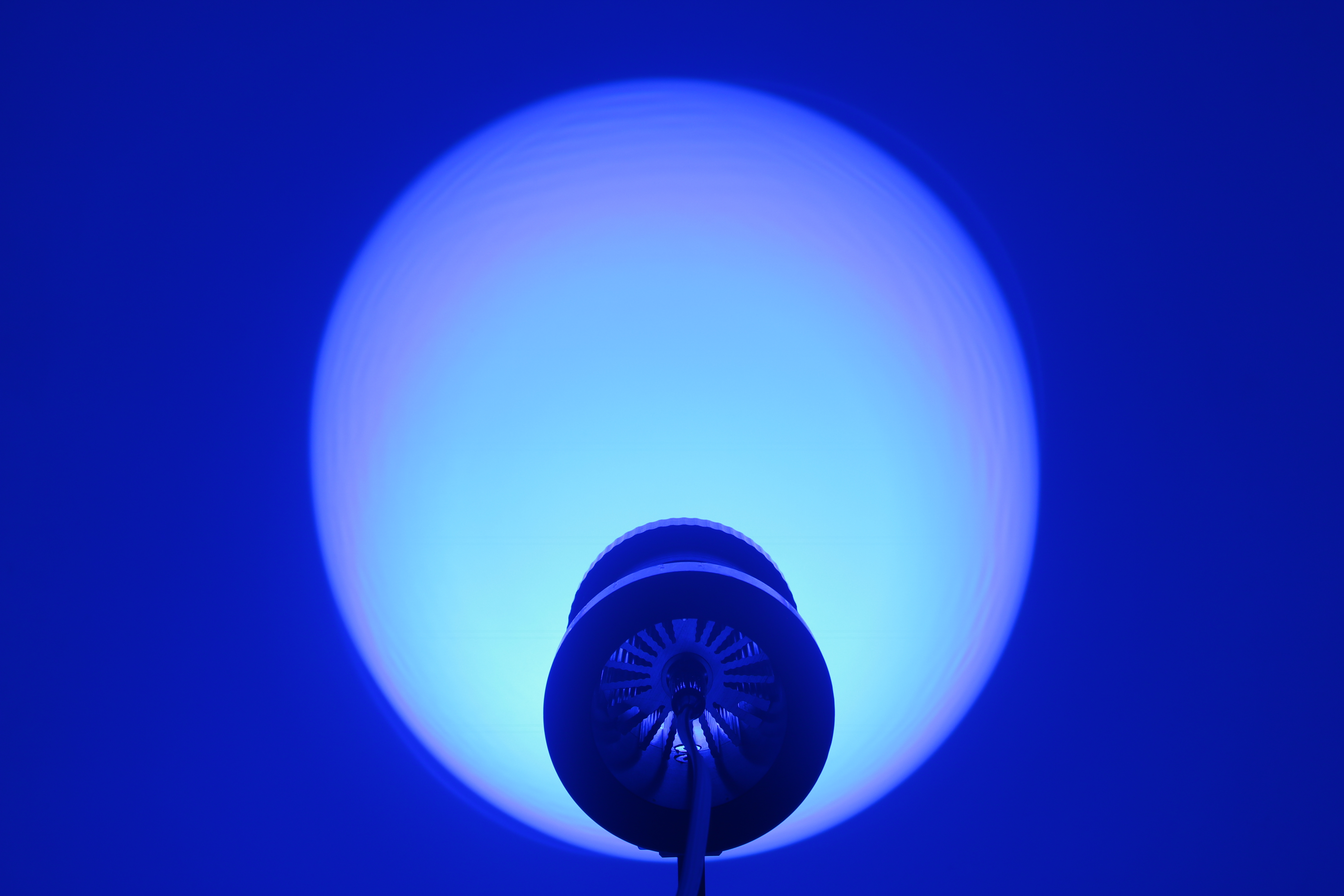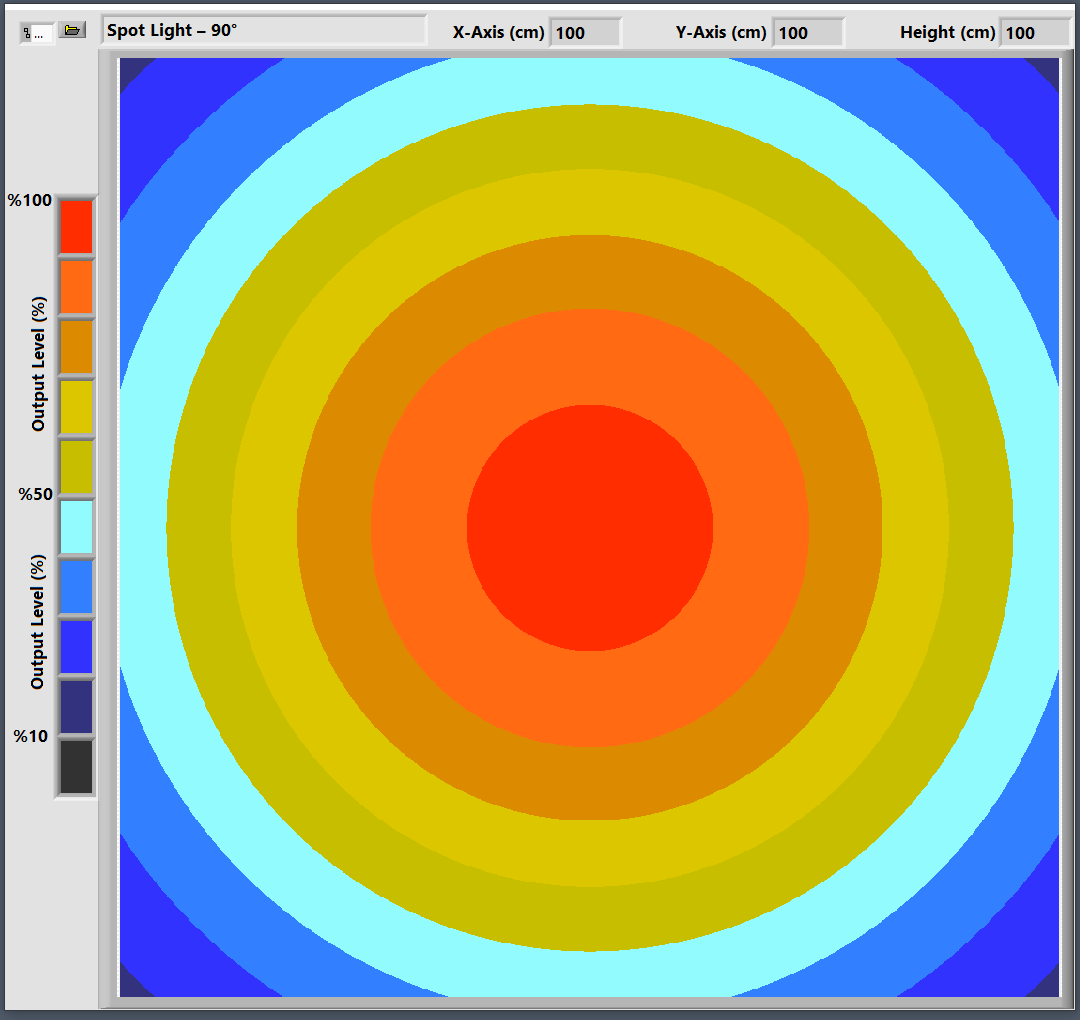Spot Light 90
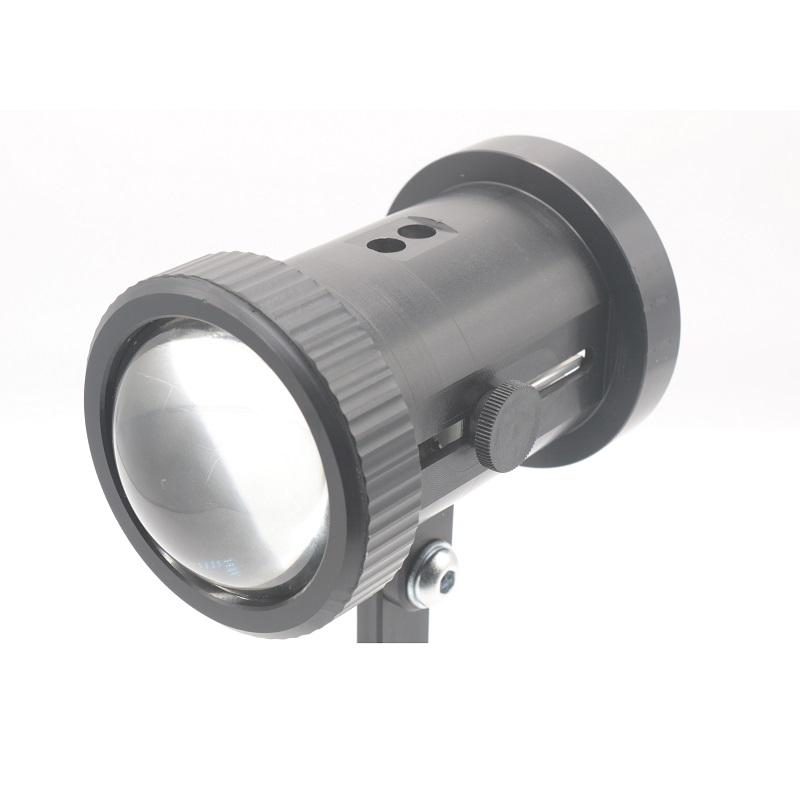
LUDRE ADJUSTABLE AREA LIGHTING SPOTLIGHT AAL1 MACHINE VISION IMAGE PROCESSING LIGHT
TECHNICAL SPECIFICATIONS
Lighting Color: 4000K, 6000K, Blue
Illumination Angle: Adjustable Angle from 30° to 90°
Illumination Intensity: 5000 lm
Number of LEDs: 1
Input Voltage: 36 V
Input Current (15 µs): 5 Amperes
Input Current (1 second): 2.5 Amperes
Input Current (1 minute): 1 Ampere
Input Current (continuous): 0.4 Amperes
Dimensions: 7.5 cm x 12 cm x 26 cm
Stable Voltage Operation: No
Diffuser Option: No
The areas of application for spotlighting in image processing projects include:
1. Object or Area Identification: Spotlighting is used to distinguish and highlight a specific object or area from others. This is particularly important in object detection and recognition applications.
2. Detailed Surface Inspections: Spotlighting is employed to enhance the surface details of objects. This allows for better observation of defects, patterns, or text on the surface.
3. High-Contrast Images: This type of lighting is used to obtain high-contrast images. It is preferred for emphasizing specific object features or enhancing shadow effects.
4. Depth Perception and Edge Detection: Spotlighting is effective in depth perception and edge detection applications. Focusing on a specific region helps represent the structure of the object more clearly.
5. High-Precision Measurements: Spotlighting is used in high-precision measurements as it focuses on a specific area. It is especially suitable for detailed examinations under a microscope.
6. Surface Roughness and Structural Analysis: Spotlighting can be used in surface roughness and structural analysis applications to emphasize specific details for analysis.
7. Shadow Control: Spotlighting provides shadow control by focusing on a specific area. This is useful for managing shadows and effectively illuminating specific regions.
Spotlighting is a preferred option in image processing projects to meet specific focused needs and highlight particular details.


